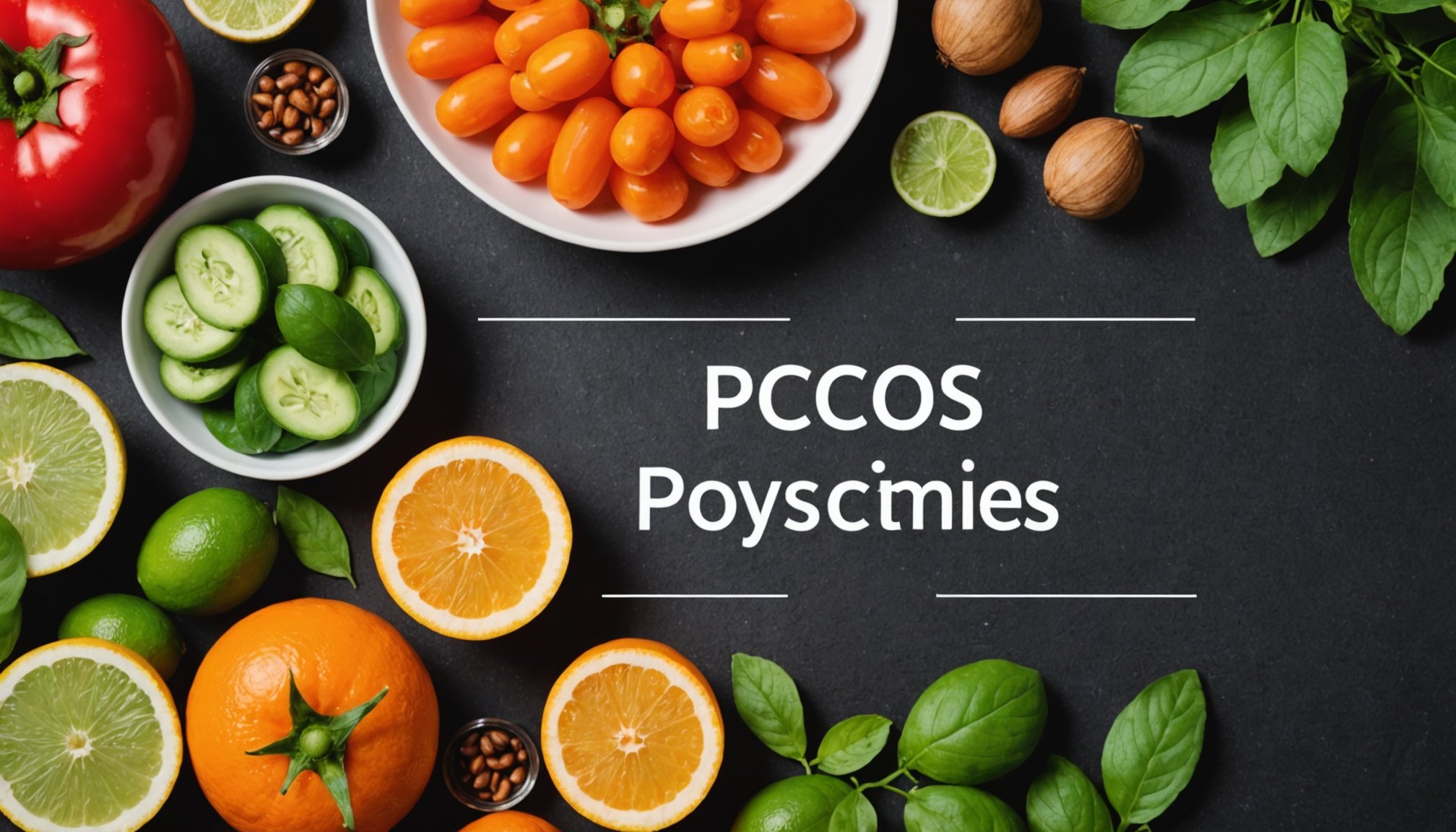Unlocking Wellness: The Role of Lifestyle Changes in Effectively Managing Polycystic Ovary Syndrome (PCOS)
Polycystic Ovary Syndrome (PCOS) is a complex and multifaceted condition that affects millions of women worldwide. It is characterized by a range of symptoms, including irregular menstrual cycles, high androgen levels, polycystic ovaries, and often, insulin resistance and weight gain. While there is no cure for PCOS, lifestyle changes can significantly improve the quality of life for women affected by this syndrome.
Understanding PCOS: The Basics
Before diving into the lifestyle changes, it’s crucial to understand the basics of PCOS. This condition is the most common endocrine disorder among women of reproductive age, affecting an estimated 5 million women in the U.S. alone[1].
Have you seen this : Unlocking Relief: The Advantages of Integrative Health Strategies for Chronic Fatigue Syndrome Patients
PCOS is marked by hormonal imbalances, particularly an excess of androgens, which can lead to symptoms such as hirsutism (excessive hair growth), acne, and irregular menstrual periods. Insulin resistance, a precursor to type 2 diabetes, is also a common feature, contributing to weight gain and metabolic issues[2].
The Importance of Weight Loss in Managing PCOS
Weight loss is often the first line of therapy for women with PCOS, especially those who are overweight or obese. Even a modest weight loss of 5-10% can significantly improve symptoms.
In parallel : Unlocking the Power of Holistic Therapies: Boosting Recovery for Gastrointestinal Disorders
How Weight Loss Helps
- Resumption of Menstrual Cycles: Weight loss can help regulate menstrual cycles, which is a critical indicator of fertility and overall hormonal balance[1][2][3].
- Improved Insulin Sensitivity: Reducing body weight helps in improving insulin sensitivity, which in turn lowers blood sugar levels and reduces the risk of developing type 2 diabetes[2][3].
- Hormonal Balance: Weight loss can decrease androgen levels, reducing symptoms like hirsutism and acne[1][2].
Dietary Changes: A Key Component of PCOS Management
Diet plays a fundamental role in managing PCOS symptoms. Here are some key dietary strategies that can help:
Plant-Based Diet
A plant-based diet is highly recommended for women with PCOS. Here’s why:
- Weight Loss: Plant-based diets are effective for weight loss and maintaining a healthy body weight. A low-fat, plant-based diet can reduce dietary Advanced Glycation End-products (AGEs) by 73%, which are harmful to insulin sensitivity and ovarian function[1].
- Improved Insulin Sensitivity: Foods rich in fiber, such as whole grains, legumes, and nuts, help improve insulin action and reduce androgen levels. Inositol, a sugar found in these foods, has been shown to improve ovulatory function and insulin sensitivity[1].
- Reduced Inflammation: Plant-based diets are rich in anti-inflammatory foods like berries, leafy greens, and fatty fish, which can help reduce chronic inflammation associated with PCOS[5].
Balanced Macronutrient Intake
Ensuring a balanced intake of carbohydrates, proteins, and fats is essential. Here’s a breakdown:
- Protein: Include plant-based proteins like beans, lentils, and quinoa, as well as lean animal proteins like poultry, fish, and eggs. Aim for at least 25-30 grams of protein per meal[5].
- Healthy Fats: Focus on healthy fats from sources like avocado, nuts, and seeds. These help regulate blood sugar levels and provide essential nutrients[5].
- Complex Carbohydrates: Choose whole grains over refined carbohydrates to avoid abnormal spikes in blood sugar levels. Foods like whole grain bread, brown rice, and vegetables are ideal[3][5].
Key Nutrients
Certain nutrients are particularly beneficial for women with PCOS:
- Fiber: Aim for 40 grams of fiber daily from sources like fruits, vegetables, whole grains, and legumes. Fiber helps in weight loss and improves insulin resistance[1].
- Chromium: This mineral improves insulin sensitivity and can lower the risk of developing type 2 diabetes. It also increases the chances of ovulation in women with PCOS[1].
- Omega-3 Fatty Acids: Found in foods like ground flaxseed, chia seeds, walnuts, and soybeans, omega-3s help reduce inflammation and improve cholesterol levels[1].
Physical Activity: An Essential Component
Physical activity is crucial for managing PCOS symptoms. Here’s how it can help:
Cardio Routines
- Brisk Walking and Dancing: Start with gentle activities like brisk walking, dancing, or yoga to get your heart rate up and improve mental health[3].
- High-Intensity Interval Training (HIIT): For those who are moderately active, HIIT can be an effective way to burn calories and improve lung capacity and muscle strength[3].
Strength Training
- Building Muscle: Strength training helps increase total calorie consumption, making it easier to regulate blood glucose levels. Use resistance bands, gym machines, or bodyweight exercises to build muscle[3].
Managing Stress and Mental Health
Stress and mental health are often overlooked but are critical components of PCOS management.
Mindful Eating
- Pay Attention to Hunger and Fullness Cues: Eat slowly, chew, and savor each bite. Mindful eating helps ensure proper digestion and promotes a healthy relationship with food[5].
Reducing Stress
- Yoga and Meditation: Practices like yoga and meditation can help reduce stress levels and improve overall mental health[3].
- Support Systems: Having a strong support system, whether it be family, friends, or support groups, can make a significant difference in managing the emotional aspects of PCOS[4].
Overcoming Barriers to Lifestyle Changes
While lifestyle changes are essential, there are often barriers that prevent women from adopting these changes.
Weight Stigma
- Individualized Advice: Weight stigma can negatively impact both larger and smaller bodies, affecting self-perception and mental health. Individualized and PCOS-specific lifestyle advice can help mitigate this issue[4].
Healthcare Professional Education
- Multidisciplinary Teams: Healthcare professionals need better education on lifestyle management for PCOS. A multidisciplinary team including dietitians can provide comprehensive care and improve health outcomes[4].
Practical Insights and Actionable Advice
Here are some practical tips and advice for women with PCOS:
Daily Dietary Plan
- Breakfast: Include protein (eggs), healthy fats (avocado), and complex carbohydrates (whole grain toast) along with fiber-rich foods (berries)[5].
- Lunch: Opt for a veggie turkey bean chili with lean protein, fiber, and healthy fats (organic sour cream)[5].
- Dinner: Choose salmon (protein and fat) with smashed potatoes (carb) and grilled vegetables (fiber)[5].
Physical Activity Routine
- Start Slow: Begin with brisk walking or dancing and gradually move to more intense activities like HIIT or strength training[3].
- Consistency: Aim for at least 150 minutes of moderate-intensity aerobic activity or 75 minutes of vigorous-intensity aerobic activity per week[3].
Quotes from Experts
- Dr. Ali Chappell, PhD, MS, RD: “When interventions focus on the root cause of weight gain — insulin resistance — PCOS symptoms are more likely to improve. Directly addressing insulin resistance is essential for achieving meaningful improvements in PCOS symptoms, including weight loss.”[2]
- Alyssa Pacheco, RD: “PCOS is characterized by hormonal imbalances and metabolic disturbances. Insulin resistance, chronic inflammation, estrogen imbalances, high cortisol, and gut dysbiosis can all make losing weight difficult. However, when someone loses weight, they can usually expect to see improvements in blood sugar and insulin levels, cholesterol levels, and testosterone levels.”[2]
- Stephanie McBurnett, RDN, LDN: “Embrace a plant-based diet abundant in fiber and other hormone-regulating compounds, such as soy, to effectively ease numerous painful symptoms and regain control over hormone balance.”[1]
Managing PCOS requires a holistic approach that includes dietary changes, physical activity, stress management, and support. By focusing on balanced, nutrient-dense foods, mindful eating practices, and regular physical activity, women with PCOS can improve their insulin sensitivity, reduce inflammation, manage weight fluctuations, and promote hormonal balance.
While diet alone may not cure PCOS, it is a powerful tool that, combined with other lifestyle changes, can significantly enhance overall well-being and quality of life. Remember, every small change counts, and with the right support and guidance, women with PCOS can unlock a healthier, happier life.
Table: Comparative Benefits of Different Diets for PCOS
| Diet Type | Key Benefits | Examples of Foods | Impact on PCOS Symptoms |
|---|---|---|---|
| Plant-Based | Weight loss, improved insulin sensitivity, reduced inflammation | Whole grains, legumes, nuts, seeds | Improves menstrual frequency, reduces androgen levels, enhances ovulatory function[1][5] |
| Low-Carbohydrate | Weight loss, improved blood sugar regulation | Lean proteins, healthy fats, low glycemic index foods | Helps in weight loss, improves blood sugar levels, but may not address underlying insulin resistance as effectively[2] |
| Balanced Macronutrient | Regulates blood sugar levels, provides essential nutrients | Protein (eggs, beans), healthy fats (avocado), complex carbohydrates (whole grains) | Helps in maintaining stable blood sugar levels, reduces cravings and fatigue[5] |
Detailed Bullet Point List: Key Lifestyle Changes for Managing PCOS
-
Dietary Changes:
-
Adopt a plant-based diet rich in whole grains, legumes, and nuts.
-
Include anti-inflammatory foods like berries, leafy greens, and fatty fish.
-
Aim for 40 grams of fiber daily from sources like fruits, vegetables, and whole grains.
-
Limit refined carbohydrates and added sugars.
-
Incorporate healthy fats from sources like avocado and nuts.
-
Physical Activity:
-
Start with gentle activities like brisk walking, dancing, or yoga.
-
Gradually move to more intense activities like HIIT or strength training.
-
Aim for at least 150 minutes of moderate-intensity aerobic activity per week.
-
Stress Management:
-
Practice mindful eating to ensure proper digestion and a healthy relationship with food.
-
Engage in stress-reducing activities like yoga and meditation.
-
Build a strong support system including family, friends, or support groups.
-
Healthcare Support:
-
Seek individualized and PCOS-specific lifestyle advice from healthcare professionals.
-
Work with a multidisciplinary team including dietitians for comprehensive care.
-
Address weight stigma and focus on long-term sustainable lifestyle changes rather than just weight loss.











